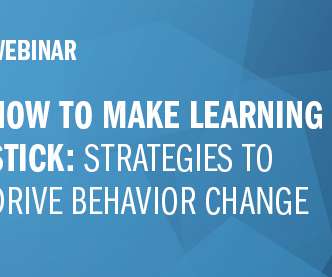The ROLE of Emotional Intelligence in Effective Leadership Today
The Center For Leadership Studies
NOVEMBER 23, 2020
Leaders who didn’t have that figured out before 2020 have certainly had a crash course—or crashed and burned. Previous blogs in this series have cited research proving the most successful leaders have strong EI profiles. The EQ Edge: Emotional Intelligence and Your Success. links to blogs 1 & 2 here) In the EQi-2.0®












Let's personalize your content